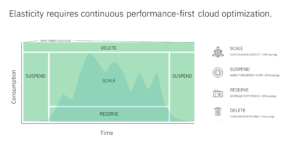
By leveraging AI for real-time event processing, businesses can connect the dots between disparate events to detect and respond to new trends, threats and opportunities. In 2023, the IBM® Institute for Business Value (IBV) surveyed 2,500 global executives and found that best-in-class companies are reaping a 13% ROI from their AI projects—more than twice the average ROI of 5.9%.
As all businesses strive to adopt a best-in-class approach for AI tools, let’s discuss best practices for how your company can leverage AI to enhance your real-time event processing use cases. Check out the webcast, “Leveraging AI for Real-Time Event Processing,” by Stephane Mery, IBM Distinguished Engineer and CTO of Event Integration, to learn more about these concepts.
AI and event processing: a two-way street
An event-driven architecture is essential for accelerating the speed of business. With it, organizations can help business and IT teams acquire the ability to access, interpret and act on real-time information about unique situations arising across the entire organization. Complex event processing (CEP) enables teams to transform their raw business events into relevant and actionable insights, to gain a persistent, up-to-date view of their critical data and to quickly move data to where it is needed, in the structure it’s needed in.
Artificial intelligence is also key for businesses, helping provide capabilities for both streamlining business processes and improving strategic decisions. In fact, in a survey of 6,700 C-level executives, the IBV found that more than 85% of advanced adopters were able to reduce their operating costs with AI. Non-symbolic AI can be useful for transforming unstructured data into organized, meaningful information. This helps to simplify data analysis and enable informed decision-making. Furthermore, AI algorithms’ capacity for recognizing patterns—by learning from your company’s unique historical data—can empower businesses to predict new trends and spot anomalies sooner and with low latency. Furthermore, symbolic AI can be designed to reason and infer about facts and structured data, making it useful for navigating through complex business scenarios. Additionally, developments in both closed and open source large language models (LLM) are enhancing AI’s ability for understanding plain, natural language. We’ve seen examples of this in the latest evolution of chatbots.This canhelp businesses optimize their customer experiences, allowing them to quickly extract insights from interactions in their customers’ journey.
By bridging artificial intelligence and real-time event processing, companies could enhance their efforts on both fronts and help ensure their investments are making an impact on business goals. Real-time event processing can help fuel faster, more precise AI; and AI can help make your company’s event processing efforts more intelligent and responsive to your customers.
How event processing fuels AI
By combining event processing and AI, businesses are helping to drive a new era of highly precise, data-driven decision making. Here are some ways that event processing could play a pivotal role in fueling AI capabilities.
- Events as fuel for AI Models: Artificial intelligence models rely on big data to refine the effectiveness of their capabilities. An event streaming platform (ESP) plays a crucial role in this, by providing a continuous pipeline of real-time information from businesses’ mission-critical data sources. This helps to ensure that AI models have access to the latest data, whether it is processed in-motion from an event stream or pooled in large datasets, to help models train more effectively and operate at the speed of business.
- Aggregates as predictive insights: Aggregates, which consolidate data from various sources across your business environment, can serve as valuable predictors for machine learning (ML) algorithms. As opposed to repeatedly polling APIs or waiting for data to process in batches, event processing can compute these aggregates incrementally, continuously operating as your raw streams of events are being generated. Stream analytics can be used to help improve the speed and accuracy of models’ predictions.
- Up-to-date context to apply AI effectively: Event processing can play a crucial role in shaping the real-time business context needed to harness the power of AI. Event processing helps continuously update and refine our understanding of ongoing business scenarios. This helps ensure that insights derived from historical data, through the training of machine learning models (ML models), are practical and applicable in the present. For instance, when AI presents a prediction that a client may be on the verge of churning, it’s important to consider this forecast in context of our current knowledge about a specific client. This knowledge is not static and new event data helps to evolve our latest knowledge with each interaction, to help guide decision-making and intervention.
By bridging the gap between event processing and AI, companies can help provide real-time data for training AI models, take advantage of data processing in-motion to compute live aggregates that help improve predictions, and help ensure that AI can be applied effectively within an up-to-date business context.
How AI makes event processing more intelligent
Artificial intelligence can make event stream processing more intelligent and responsive in dynamic and complex data landscapes. Here are some ways that AI could enhance your event-driven initiatives:
- Anomaly detection and pattern recognition: Artificial intelligence’s ability to detect anomalies and recognize patterns can help greatly enhance event processing. AI can sift through the constant stream of raw business events to identify irregularities or meaningful trends. By combining historical analyses with live event pattern recognition, companies can help their teams develop more detailed profiles and respond proactively to potential threats and new customer opportunities.
- Reasoning for correlation and causation: Artificial intelligence can help equip real-time event processing tools with the ability to reason about correlation and causation between key business metrics and data streams. This means that not only can AI identify relationships between streams of business events, but it can also uncover cause-and-effect dynamics that can shed light on previously unconsidered business scenarios.
- Unstructured data interpretation: Unstructured data can often contain untapped insights. AI excels at making sense of plain, natural language and interpreting other kinds of unstructured data that are contained within your incoming events. This ability can help to enhance the overall intelligence of your event processing systems, by extracting valuable information from seemingly chaotic or unorganized event sources.
Learn more and get started with IBM Event Automation
Connect with the IBM experts and request a custom demo of IBM Event Automation to see how it can help you and your team in putting business events to work, powering real-time data analytics and activating intelligent automation.
IBM Event Automation is a fully composable solution, built on open technologies, with capabilities for:
- Event streaming: Collect and distribute raw streams of real-time business events with enterprise-grade Apache Kafka.
- Event endpoint management: Describe and document events easily according to the Async API specification. Promote sharing and reuse while maintaining control and governance.
- Event processing: Harness the power of Apache Flink to build and instantly test SQL stream processing flows in an intuitive, low-code authoring canvas.
Learn more about how you can build or enhance your own complete, composable enterprise-wide event-driven architecture.
Explore IBM Event Automation website
More from Automation

November 24, 2023
Generative AI in application modernization
8 min read – Application modernization is the process of updating legacy applications leveraging modern technologies, enhancing performance and making it adaptable to evolving business speeds by infusing cloud native principles like DevOps, Infrastructure-as-code (IAC) and so on. Application modernization starts with assessment of current legacy applications, data and infrastructure and applying the right modernization strategy (rehost, re-platform, refactor or rebuild) to achieve the desired result. While rebuild results in maximum benefit, there is a need for high degree of investment, whereas rehost is…

November 21, 2023
Your Black Friday observability checklist
3 min read – Black Friday—and really, the entire Cyber Week—is a time when you want your applications running at peak performance without completely exhausting your operations teams. Observability solutions can help you achieve this goal, whether you’re a small team with a single product or a large team operating complex ecommerce applications. But not all observability solutions (or tools) are alike, and if you are missing just one key capability, it could cause customer satisfaction issues, slower sales and even top- and bottom-line…

November 20, 2023
Integrating healthcare apps and data with FHIR + HL7
3 min read – Today’s healthcare providers use a wide variety of applications and data across a broad ecosystem of partners to manage their daily workflows. Integrating these applications and data is critical to their success, allowing them to deliver patient care efficiently and effectively. Despite modern data transformation and integration capabilities that made for faster and easier data exchange between applications, the healthcare industry has lagged behind because of the sensitivity and complexity of the data involved. In fact, some healthcare data are…

November 14, 2023
IBM named a Leader in The Forrester Wave™: Digital Process Automation Software, Q4 2023
2 min read – Forrester Research just released “The Forrester Wave™: Digital Process Automation Software, Q4 2023: The 15 Providers That Matter Most And How They Stack Up” by Craig Le Clair with Glenn O’Donnell, Renee Taylor-Huot, Lok Sze Sung, Audrey Lynch, and Kara Hartig and IBM is proud to be recognized as a Leader. IBM named a Leader In the report, Forrester Research evaluated 15 digital process automation (DPA) providers against 26 criteria in three categories: Current offering, Strategy and Market presence. IBM…
IBM Newsletters
Get our newsletters and topic updates that deliver the latest thought leadership and insights on emerging trends.
Subscribe now
More newsletters
- SEO Powered Content & PR Distribution. Get Amplified Today.
- PlatoData.Network Vertical Generative Ai. Empower Yourself. Access Here.
- PlatoAiStream. Web3 Intelligence. Knowledge Amplified. Access Here.
- PlatoESG. Carbon, CleanTech, Energy, Environment, Solar, Waste Management. Access Here.
- PlatoHealth. Biotech and Clinical Trials Intelligence. Access Here.
- Source: https://www.ibm.com/blog/real-time-artificial-intelligence-and-event-processing/
- :has
- :is
- :not
- :where
- 1
- 14
- 15%
- 20
- 2023
- 24
- 26
- 29
- 30
- 300
- 31
- 40
- 400
- 500
- 700
- 9
- a
- ability
- Able
- About
- accelerating
- access
- According
- accuracy
- Achieve
- acquire
- across
- Act
- activating
- Additionally
- adopt
- adopters
- advanced
- ADvantage
- Advertising
- against
- AI
- AI models
- algorithms
- alike
- All
- Allowing
- also
- amp
- an
- analyses
- analysis
- analytics
- and
- and infrastructure
- Apache
- Apache Kafka
- api
- APIs
- applicable
- Application
- applications
- applied
- Apply
- Applying
- approach
- apps
- architecture
- ARE
- article
- artificial
- artificial intelligence
- AS
- assessment
- At
- audrey
- author
- authoring
- Automation
- average
- back
- BE
- because
- behind
- being
- benefit
- BEST
- best practices
- between
- Big
- Big Data
- Black
- Black Friday
- Blog
- Blue
- both
- bridging
- broad
- build
- built
- business
- business processes
- businesses
- but
- button
- by
- CAN
- canvas
- capabilities
- capability
- Capacity
- carbon
- card
- Cards
- care
- cases
- CAT
- categories
- Category
- Cause
- chatbots
- check
- circles
- class
- client
- closed
- Cloud
- cloud native
- colleagues
- collect
- color
- combining
- Companies
- company
- Company’s
- complete
- completely
- complex
- complexity
- Compute
- concepts
- Connect
- Consider
- consolidate
- constant
- contain
- contained
- Container
- context
- continue
- continuous
- continuously
- control
- Correlation
- Costs
- could
- Craig
- criteria
- critical
- crucial
- CSS
- CTO
- Current
- custom
- customer
- Customer satisfaction
- Customers
- cyber
- daily
- data
- data analysis
- Data Analytics
- Data Exchange
- data processing
- data-driven
- datasets
- Date
- decision
- Decision Making
- decisions
- Default
- definitions
- Degree
- deliver
- Derived
- describe
- description
- designed
- desired
- Despite
- detailed
- detect
- Detection
- develop
- developments
- DevOps
- digital
- discuss
- disparate
- Distinguished
- distribute
- document
- drive
- dynamic
- dynamics
- each
- easier
- easily
- ecommerce
- ecosystem
- effectively
- effectiveness
- efficiently
- efforts
- emerging
- empower
- enable
- enables
- Endpoint
- engineer
- enhance
- enhancing
- ensure
- Enter
- enterprise-grade
- Entire
- Environment
- Era
- essential
- Ether (ETH)
- evaluated
- Even
- Event
- events
- evolution
- evolve
- evolving
- examples
- exchange
- executives
- Exit
- Experiences
- experts
- extract
- fact
- facts
- false
- faster
- Flows
- follow
- fonts
- For
- Forecast
- Forrester
- Forrester Research
- found
- Friday
- from
- Fuel
- fuels
- fully
- Furthermore
- Gain
- gap
- generated
- generative
- Generative AI
- generator
- get
- Global
- goal
- Goals
- governance
- greatly
- Grid
- guide
- harness
- Have
- Heading
- healthcare
- healthcare industry
- height
- help
- helping
- helps
- here
- High
- highly
- historical
- How
- http
- HTTPS
- IAC
- IBM
- ICO
- ICON
- identify
- if
- image
- Impact
- important
- improve
- improving
- in
- Incoming
- index
- industry
- information
- informed
- Infrastructure
- initiatives
- insights
- instance
- instantly
- Institute
- Integrating
- integration
- Intelligence
- Intelligent
- Intelligent Automation
- interaction
- interactions
- interpretation
- intervention
- into
- intuitive
- investment
- Investments
- involved
- issues
- IT
- journey
- jpg
- just
- just one
- kafka
- Key
- knowledge
- laboratory
- language
- large
- Latency
- latest
- leader
- Leadership
- LEARN
- learning
- Legacy
- Leverage
- leveraging
- light
- like
- live
- local
- locale
- Low
- machine
- machine learning
- made
- maintaining
- make
- MAKES
- Making
- manage
- manager
- Market
- Marketing
- Matter
- max-width
- maximum
- May..
- meaningful
- means
- Metrics
- min
- minutes
- missing
- ML
- Mobile
- models
- Modern
- modern technologies
- modernization
- more
- most
- move
- Named
- native
- Natural
- Natural Language
- navigating
- Navigation
- Need
- needed
- New
- Newsletters
- nothing
- November
- now
- of
- off
- offering
- often
- on
- ONE
- ongoing
- only
- open
- open source
- operate
- operating
- Operations
- opportunities
- opposed
- Optimize
- optimized
- or
- organization
- organizations
- Organized
- Other
- our
- out
- overall
- own
- page
- partners
- patient
- patient care
- Pattern
- patterns
- Peak
- performance
- PHP
- pipeline
- pivotal
- Plain
- platform
- plato
- Plato Data Intelligence
- PlatoData
- Play
- plays
- plugin
- policy
- position
- Post
- potential
- power
- Powering
- Practical
- practices
- precise
- predict
- prediction
- Predictions
- predictive
- presence
- present
- presents
- previously
- primary
- principles
- process
- Process Automation
- processed
- processes
- processing
- Product
- Profiles
- promote
- proud
- provide
- providers
- providing
- Putting
- quickly
- Raw
- Reading
- real-time
- real-time data
- really
- reaping
- reason
- recognition
- recognize
- recognized
- recognizing
- reduce
- Refactor
- refine
- Relationships
- released
- relevant
- rely
- REPEATEDLY
- report
- research
- Respond
- responsive
- result
- Results
- reuse
- right
- robots
- ROI
- Role
- running
- sales
- satisfaction
- scenarios
- Screen
- scripts
- see
- seen
- sense
- Sensitivity
- seo
- serve
- shaping
- sharing
- shed
- Sift
- simplify
- single
- site
- situations
- small
- So
- Software
- solution
- Solutions
- some
- Source
- Sources
- specific
- specification
- speed
- speeds
- Sponsored
- Spot
- SQL
- squares
- stack
- start
- started
- starts
- Strategic
- Strategy
- stream
- streaming
- streamlining
- streams
- strive
- structure
- structured
- subscribe
- success
- Survey
- surveyed
- SVG
- symbolic
- Systems
- Tablet
- Take
- team
- teams
- Technologies
- tertiary
- test
- than
- that
- The
- their
- Them
- theme
- There.
- These
- they
- this
- thought
- thought leadership
- threats
- three
- Through
- time
- Title
- to
- tools
- top
- topic
- Train
- Training
- Transform
- Transformation
- transforming
- Trends
- Twice
- type
- uncover
- understanding
- unique
- untapped
- up-to-date
- Update
- Updates
- updating
- URL
- use
- used
- using
- Valuable
- Valuable Information
- variety
- various
- verge
- View
- W
- Waiting
- want
- ways
- were
- when
- whereas
- whether
- which
- while
- wide
- with
- within
- without
- WordPress
- Work
- workflows
- written
- you
- Your
- zephyrnet












